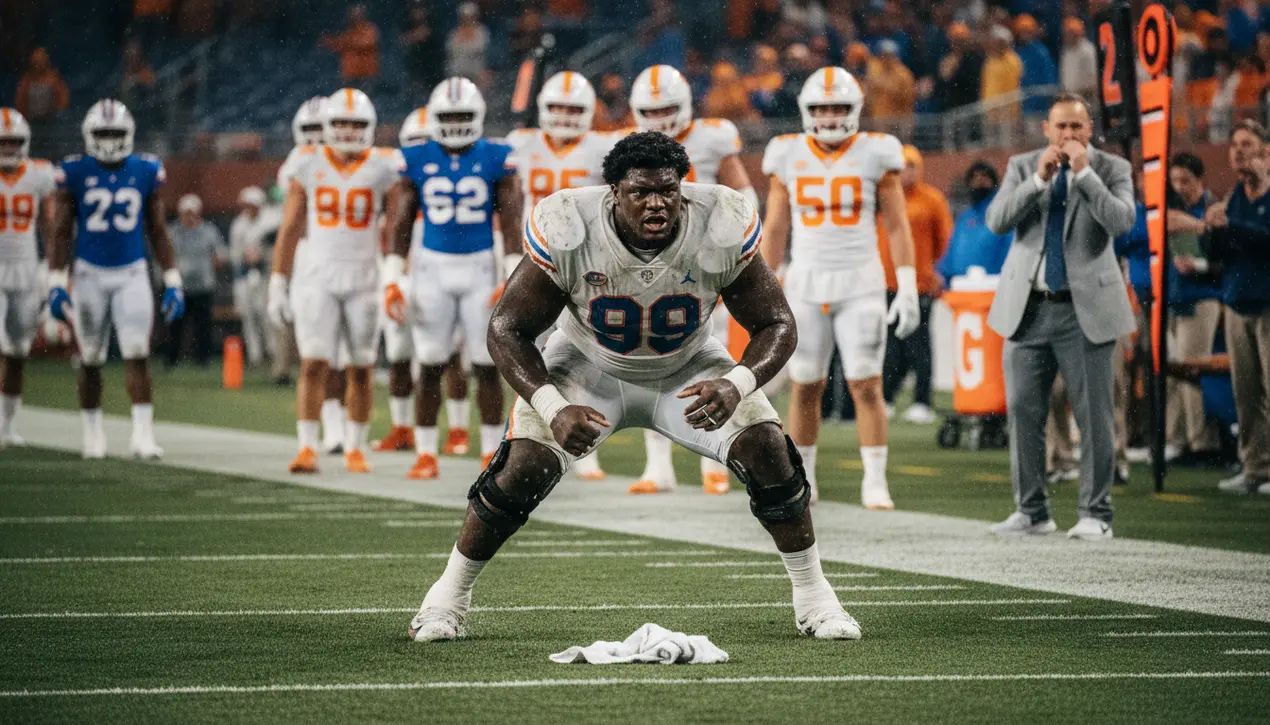- News
- basketball
- SEC lacks first-round NFL talent in 2026 because players have not met expectations, evaluator says

SportbasketballDraft and Trades
SEC lacks first-round NFL talent in 2026 because players have not met expectations, evaluator says
JA
Jack Turner
13 hours ago7 min read2 comments
The powerhouse Southeastern Conference, long considered the NFL's premier talent pipeline, is facing an unprecedented talent drain that has league evaluators deeply concerned about the 2026 draft class. Florida defensive tackle Caleb Banks embodies this troubling trend—the 6-foot-5, 330-pound senior, once projected as a potential first-round pick, has seen his draft stock plummet after battling a left foot injury that required surgery and limited him to just one game appearance this season.His planned return for Florida's final two games represents a desperate attempt to salvage his professional prospects, but as Florida interim coach Billy Gonzales noted, Banks has 'plenty to prove' beginning with Saturday's rivalry game against No. 20 Tennessee.This struggle for relevance extends far beyond Banks, with longtime NFL evaluator Tony Pauline delivering a sobering assessment: 'The SEC is basically indicative of what the 2026 draft is going to look like. It's disappointing and filled with a lot of players who have not met expectations.' The conference that produced 15 first-round selections just last April—nearly half of all opening-night picks—now projects to have its fewest first-rounders since 2015, with several NFL decision-makers confirming to The Associated Press that the SEC likely won't reach double digits and may even lack a top-five selection for the first time since 2018. Alabama quarterback Ty Simpson represents one of the few bright spots, rising dramatically with 22 touchdowns against just two interceptions, joining a small group of legitimate prospects including Alabama left tackle Kadyn Proctor, Auburn defensive end Keldric Faulk, Georgia linebacker CJ Allen, and Tennessee cornerbacks Colton Hood and Jermod McCoy—the latter a preseason All-America selection who hasn't played since tearing a knee ligament in January but remains talented enough that NFL teams might still consider him in the first round.Yet these isolated successes can't mask the broader disappointment, as Pauline observes that 'none of the Alabama guys except for Ty Simpson has really elevated their game, and this is a down year for Georgia. ' The underperformance has been particularly glaring at quarterback, where LSU's Garrett Nussmeier, South Carolina's LaNorris Sellers, and Texas's Arch Manning—all Heisman Trophy front-runners to open the season—now rank 12th, 13th, and 10th respectively in QB rating within their own conference.Meanwhile, Auburn left tackle Xavier Chaplin has become what Pauline describes as a 'human penalty flag,' struggling with repeated false starts that became so problematic the Tigers had his hearing tested during an early season bye week. This collective regression raises fundamental questions about whether this represents a one-year anomaly or reflects the new reality of college football, where revenue-sharing and name, image and likeness payments have distributed top talent more evenly across programs, diminishing the SEC's traditional monopoly on elite prospects.As Pauline starkly concludes, 'When the SEC's top prospects have not played up to expectations, it affects the draft as a whole. ' The silver lining emerges in the conference's sophomore class, where Alabama receiver Ryan Williams, Auburn receiver Cam Coleman, Texas edge rusher Colin Simmons, and a quartet of running backs—Florida's Jadan Baugh, Missouri's Ahmad Hardy, Mississippi's Kewan Lacy, and Tennessee's DeSean Bishop—offer hope for a 2027 draft resurgence. But for 2026, the message is clear: the SEC's developmental machinery has stalled, leaving NFL scouts scrambling and conference pride wounded as the once-dominant league faces its most significant talent evaluation crisis in over a decade.
#featured
#SEC
#NFL Draft
#college football
#player evaluation
#2026 draft
#Caleb Banks
#Tony Pauline
Stay Informed. Act Smarter.
Get weekly highlights, major headlines, and expert insights — then put your knowledge to work in our live prediction markets.
Related News
Comments
Loading comments...
© 2025 Outpoll Service LTD. All rights reserved.